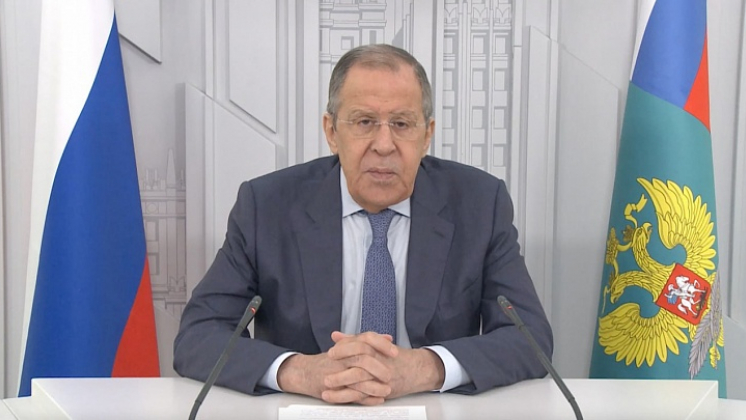Video message by Russian Foreign Minister Sergey Lavrov to the participants and organisers of the World Conference on Multipolarity Online, Moscow, 29 April 2023
Dear Colleagues,
I warmly welcome the participants and organisers of the Online World Conference on Multipolarism. It is gratifying that your forum has brought together leading political, public and academic representatives from several dozen countries from almost every continent in the world. We can only welcome this interest in a frank and depoliticised exchange of views.
The importance of such discussions cannot be overestimated. It is obvious that the 'end of history' proclaimed after the fall of the Berlin Wall and the collapse of the USSR did not take place. Attempts to establish a unipolar model of the world order - with the decision-making centre in Washington - failed.
Today, the movement towards global multipolarism is a geopolitical fact and reality. We see how the new world centres, especially in Eurasia, Asia-Pacific, the Middle East, Africa, and Latin America, are making impressive progress in various fields - based on independence, state sovereignty, and cultural and civilisational identity. At the same time, they are guided by their national interests and pursue independent policies in domestic and foreign affairs. They no longer want to be hostages to alien geopolitical games and executors of alien wills.
The facts speak for themselves. The share of G7 states in the global economy has shrunk significantly over the past three decades. And the weight of emerging market economies is steadily growing. Now the world's leading economic power - in terms of purchasing power parity - is China, which skilfully combines market mechanisms and state regulation methods.
We are witnessing the continuous renewal of the infrastructure of international relations. A striking example of multipolar diplomacy are the activities of new types of multilateral associations, such as the SCO and BRICS. Within them, countries with different political and economic systems and different value and civilisation platforms cooperate effectively in a variety of areas. The BRICS can rightly be described as a kind of cooperative 'mesh' that crosses the old North-South and West-East demarcation lines. It is no coincidence that more and more countries in the global South are seeking to establish links with these associations and become full members.
As Russian President Vladimir Putin noted, 'the trend towards multipolarism in the world is inevitable, it will only intensify. And those who do not understand this and do not follow this trend will lose'.
It seems logical that the efforts of Washington and its satellites to reverse the course of history, to force the international community to live according to an invented 'rules-based order', are failing. I will only mention the complete failure of the Westerners' line to isolate Russia. The world's majority states, in which about 85% of the Earth's population resides, are unwilling to 'pull the chestnuts out of the fire' of the former colonial metropolises.
Friends,
in today's multipolar world, with its cross-border challenges and threats, the only sensible alternative to confrontation, from which the promoters stand to lose, is to unite the efforts of the world's major centres on the principles of the UN Charter, including practical respect for the sovereign equality of states. Today we must all recognise the irreversibility of a more equitable polycentric world order. It is in our common interest to ensure that the multipolar architecture is not based on a 'balance of fears', but on a balance of interests, on universally recognised norms of international law, on a mutually respectful dialogue between different civilisations, religions and cultures.
Russia remains at the forefront of international efforts to strengthen multipolar, legal and democratic principles of communication between states. To this end, we will continue to work actively within the United Nations, including the Group of Friends in Defence of the UN Charter. Of course, we will continue to closely coordinate our steps with many like-minded friends, allies and people, including those in the CSTO, the EAEC, the CIS, the BRICS, the SCO and other regional groupings in the developing world.
Source: mid.ru


